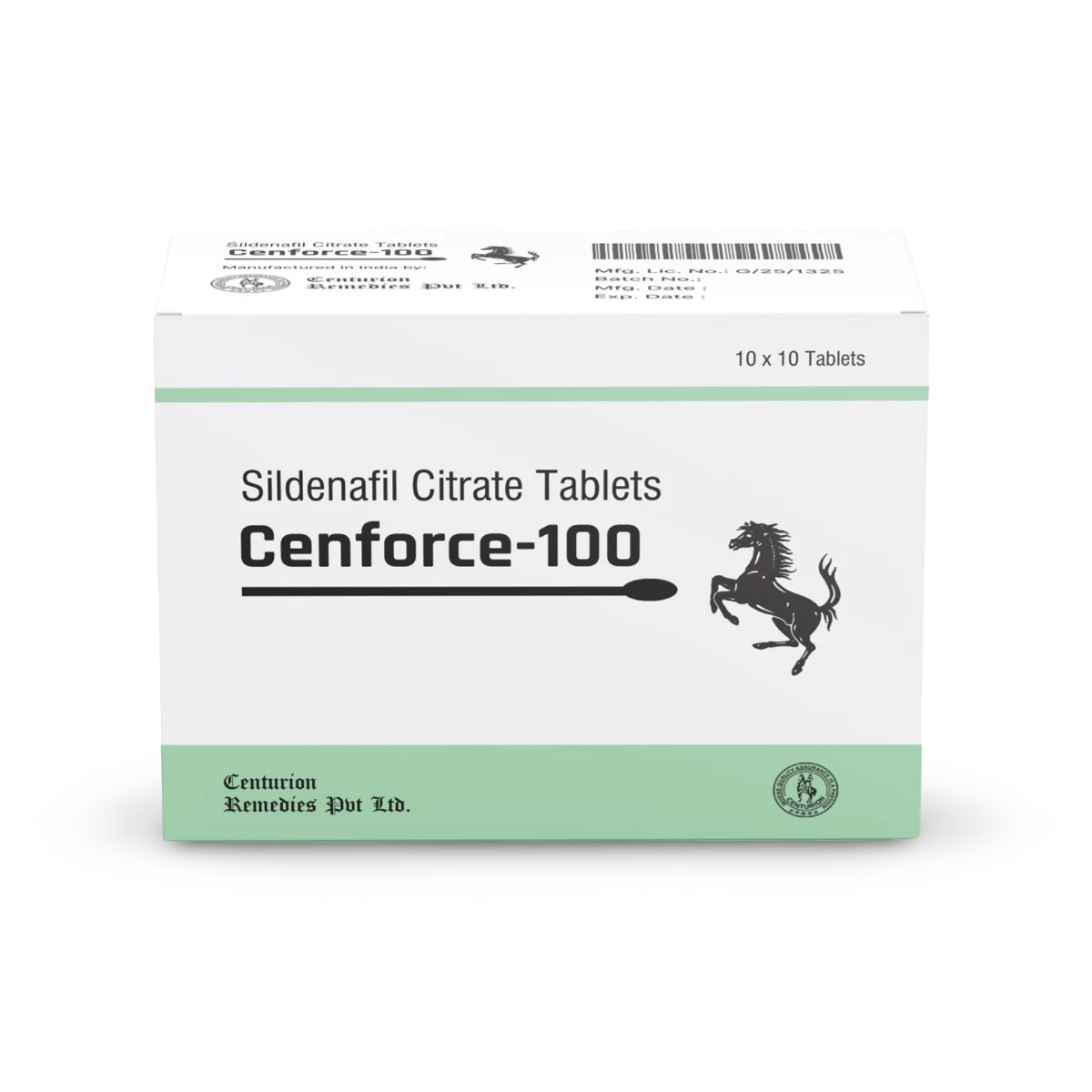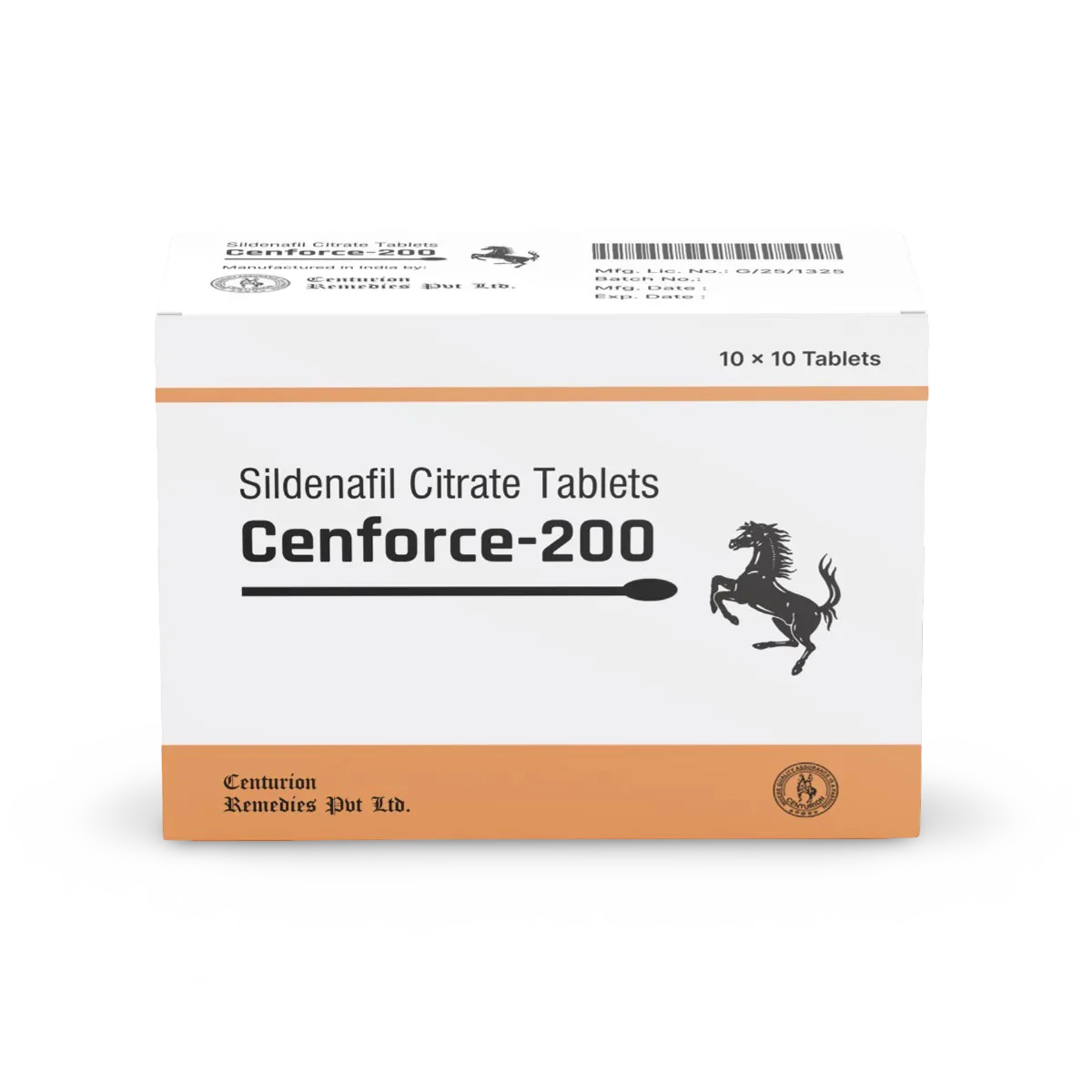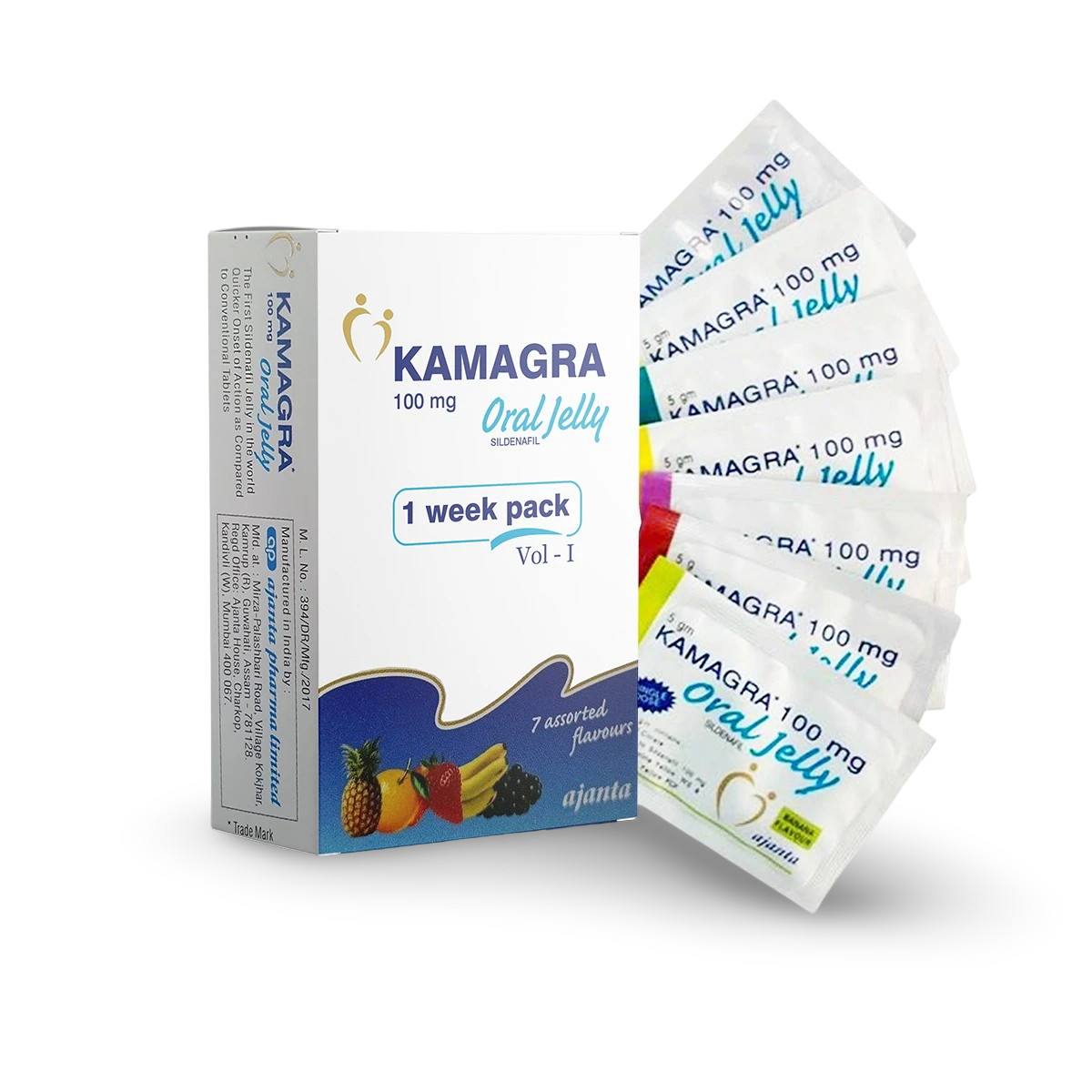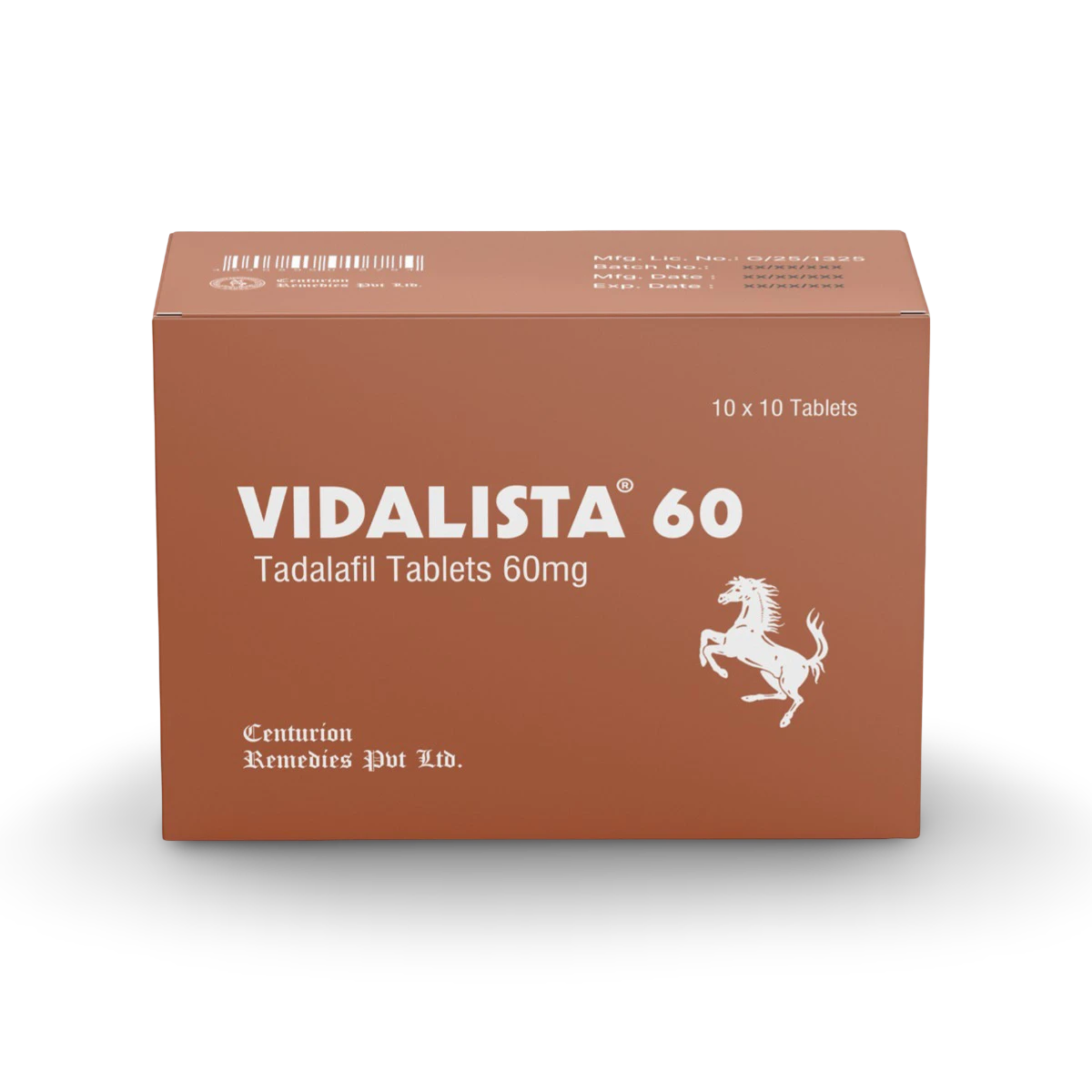Erectile Dysfunction, or ED, affects nearly 30 million men in the US, significantly impacting quality of life and intimate relationships.
Two of the most trusted medications for treating ED are Tadalafil (brand name Cialis) and Sildenafil (brand name Viagra). Both belong to a class of medicines called PDE5 inhibitors that increase blood flow to support erections.
However, they differ significantly as Tadalafil lasts up to 36 hours versus Sildenafil’s 4-6 hours. Tadalafil works with or without food, whereas Sildenafil needs an empty stomach. Understanding these differences helps you choose the right option. In this article, we will compare Tadalafil vs Sildenafil side-by-side, so read on.
Tadalafil vs Sildenafil: A quick comparison table
Here’s how these two medications compare at a glance. While both belong to the same class of drugs and work through a similar mechanism, they differ in how long they last, how quickly they act, and how they fit into your lifestyle. The table below highlights their key similarities and differences to help you make an informed choice.
| Feature | Tadalafil | Sildenafil |
| What they are | PDE5 inhibitor for ED and BPH | PDE5 inhibitor for ED and PAH |
| How they work | Blocks PDE5 enzyme, increases blood flow | Blocks PDE5 enzyme, increases blood flow |
| Half-life | 17.5 hours | 4 hours |
| Duration of action | Up to 36 hours | 4 to 6 hours |
| Onset time | 30 to 45 minutes | 30 to 60 minutes |
| Common side effects | Back pain, headache, muscle aches, indigestion | Vision changes, headache, flushing, dizziness |
| Food interaction | Can be taken with or without food; avoid grapefruit | Best on empty stomach; high-fat foods delay absorption; avoid grapefruit |
| Drug interactions | Avoid nitrates, alpha-blockers, certain antifungals | Avoid nitrates, alpha-blockers, certain antifungals |
| Dosing options | Daily (2.5 mg, 5 mg) or on-demand (10 mg, 20 mg) | On-demand only (25 mg, 50 mg, 100 mg) |
| Convenience | More flexible, daily option available | Requires timing before activity |
| Generic cost | $1-$8 per pill | $4+ per pill |
| Brand cost | $60-$70 per pill$ | $65-$140 per pill |
| Best for | Spontaneity, frequent activity, BPH treatment | Planned encounters, occasional use |
1. How do they work?
Both Tadalafil and Sildenafil are FDA-approved medications for treating Erectile Dysfunction. They increase Nitric Oxide activity in penile muscles, improving blood flow and erections during sexual stimulation.
- Tadalafil: Also approved for Benign Prostatic Hyperplasia (BPH). Its longer half-life (17.5 hours) means it lasts much longer, offering effects for up to 36 hours.
- Sildenafil: Approved for ED and Pulmonary Arterial Hypertension (PAH). It acts faster but clears more quickly, lasting 4–6 hours.
Both medicines enhance erectile response by improving penile blood flow, but Tadalafil offers additional urinary benefits through its dual FDA approval for ED and BPH.
Save up to 90% on your medicine bills

Cenforce 100 mg

Cenforce 200 mg

Kamagra Oral Jelly Rx 100 mg

Vidalista 60 mg
2. Duration of action
The duration of action represents one of the most significant differences between these medications and often influences which one men prefer.
- Tadalafil: Begins working within 30 to 45 minutes and lasts up to 36 hours, earning the nickname “the weekend pill.” Its long half-life gives men considerable flexibility in timing sexual activity without needing to plan precisely.
- Sildenafil: Takes effect in about 30 to 60 minutes and lasts around 4 to 6 hours. It’s typically taken on an as-needed basis about an hour before sexual activity.
Tadalafil lasts six times longer than Sildenafil, making it better for men who prefer spontaneity.
Sildenafil suits those who want a fast, short-acting option for scheduled intimacy.
3. Side effects
Both medications share similar side effects due to their mechanism of improving blood circulation. However, the duration and frequency may vary.
Common mild side effects include:
- Headache
- Flushing
- Nasal congestion
- Indigestion
- Dizziness
Less common or serious side effects may include:
- Vision or hearing changes
- Chest pain or irregular heartbeat
- Priapism or prolonged erection lasting more than 4 hours
According to studies, Tadalafil has been associated with a higher chance of back or muscle pain, while Sildenafil is more often linked to visual disturbances such as blurred or blue-tinted vision.
4. Interactions
Both medicines can interact with food, certain drugs and some medical conditions, affecting their effectiveness or safety, including:
Food interactions
Moderate alcohol consumption (one or two drinks) is generally safe with both medications, but excessive drinking can cause dizziness, lower blood pressure, and reduce effectiveness.
Food interactions are also important to consider:
- Tadalafil: Can be taken with or without food, and its absorption isn’t significantly affected by meals.
- Sildenafil: Works best on an empty stomach. High-fat meals like fried foods, cheese, or red meat can delay its effect by up to an hour and slightly reduce its potency.
Avoid grapefruit or grapefruit juice with both, as it can interfere with how your body metabolizes the medication, increasing side effect risks.
Drug interactions
Both medications must be avoided with nitrates, as this can dangerously lower blood pressure. Tadalafil and Sildenafil can also interact with alpha-blockers, antifungals (like Ketoconazole), and HIV protease inhibitors.
Disease interactions
Both medications should be used cautiously if you have certain heart, liver, or kidney problems, Low Blood Pressure, or retinal (eye) disorders.
5. Convenience and dosing options
Your lifestyle and sexual activity frequency significantly influence which medication offers better convenience for your situation.
- Tadalafil: Available in daily (2.5 mg–5 mg) and on-demand (10 mg–20 mg) forms, allowing you to stay ready anytime without planning.
- Sildenafil: Available on demand only (25 mg–100 mg), taken 30–60 minutes before sexual activity, requiring timing and planning.
Tadalafil’s daily option provides flexibility for frequent activity or spontaneous encounters, while Sildenafil works well for occasional, planned intimacy.
While Sildenafil can be taken daily for other conditions like BPH or PAH, there is no FDA-approved daily dosing regimen specifically for Erectile Dysfunction.
6. Cost
Medication costs vary significantly depending on whether you choose brand-name or generic versions, your insurance coverage, and where you purchase them.
- Tadalafil: Generic Tadalafil price is typically $1–$8 per pill, depending on strength and pharmacy. A 30-day supply of the daily dose (2.5mg or 5mg) may cost around $20-$30 without insurance. Brand-name Cialis is more expensive, usually $60–$70 per pill.
- Sildenafil: Generic Sildenafil can be as low as $4 per pill, though prices vary by location and dose. Brand-name Viagra generally ranges from $65-$140 per tablet.
For men using ED medication occasionally, generic Sildenafil is usually the most affordable option. For men who are sexually active multiple times per week, daily Tadalafil may be more cost-effective.
Additionally, men needing treatment for both ED and BPH may find Tadalafil offers better value since it addresses both conditions simultaneously.
Conclusion
When comparing Tadalafil vs Sildenafil, both medications effectively treat Erectile Dysfunction through identical mechanisms, but differ significantly in key areas.
Tadalafil lasts up to 36 hours compared to Sildenafil’s 4 to 6 hours, offering greater spontaneity. It also works regardless of food intake, while Sildenafil performs best on an empty stomach. In addition, Tadalafil provides both daily and on-demand dosing options, whereas Sildenafil is available only on demand. Another advantage is that Tadalafil treats both ED and prostate enlargement, while Sildenafil focuses solely on ED.
Side effects are similar, though Tadalafil causes more back pain and Sildenafil affects vision more frequently. Generic Sildenafil typically costs less per pill for occasional use.
Your choice depends on lifestyle, sexual frequency, budget, and medical needs. Always consult with your healthcare provider to determine the safest and most effective option based on your medical history.

Frequently Asked Questions
Can you cut Tadalafil or Sildenafil pills in half to save money?
No, don’t split Tadalafil or Sildenafil pills unless your doctor says it’s safe. Unscored tablets (those without a dividing line) can break unevenly, causing incorrect doses that may reduce effectiveness or increase side effects.
Does taking Tadalafil or Sildenafil reduce male fertility?
No, taking Tadalafil or Sildenafil does not reduce fertility nor affect sperm quality in any way. They only temporarily improve blood flow without altering your reproductive system’s function. If Erectile Dysfunction is preventing conception, these medications can actually help make intercourse possible more reliably for couples trying to conceive.
Can you take Tadalafil and Sildenafil together for better results?
No, you should never take Tadalafil and Sildenafil together because both work through the same mechanism. Combining ED medications significantly increases the risk of serious side effects like dangerously Low Blood Pressure, severe headaches, prolonged erections, and cardiovascular complications requiring immediate medical attention.
Will ED medications increase sexual desire or libido?
No, ED medications do not increase sexual desire or libido because they only improve the physical mechanism of achieving erections through enhanced blood flow. You still need natural sexual arousal for these medications to work, as they don’t affect hormones, mood, or psychological aspects of sexual interest or attraction.
Will long-term use of ED medications weaken natural erections?
No, using these medicines long-term doesn’t damage your natural erections. They don’t cause dependence or harm to physical function, though some men may feel mentally reliant. Gradual tapering with doctor support can help restore confidence.
Can women take Tadalafil or Sildenafil for sexual dysfunction?
No, these medications are not FDA-approved for women because they were specifically developed and tested for male Erectile Dysfunction. Limited research exists on their effects in women, and potential benefits or risks remain unclear, so women experiencing sexual dysfunction should consult their doctor for appropriate, evidence-based treatment options.
When referencing outside resources, GoodrxMedicine always provides full citations. To learn more about the measures we use to maintain the quality of our content, please review our Content Information Policy.











